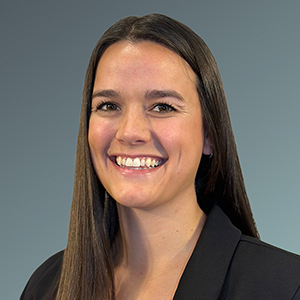If you’re thinking about a career in accounting, you’re probably focused on coursework, internships, and landing that first job. But there’s something else employers are paying attention to—and it’s right at their fingertips: your online presence. Recruiters and hiring managers often research candidates before moving forward with an applicant. And what they find online can either help your chances . . . or hurt them. This article walks through how to use LinkedIn the right way, why your other social media accounts matter more than you might think, and how to make sure your online activity supports your professional goals.
Why LinkedIn Is Different from Other Platforms
LinkedIn isn’t like Instagram, TikTok, or X. You won’t find dance trends, memes, or hot takes here (and if you do, they’re probably not from hiring managers). It’s designed for professional networking—think of it as your online resume mixed with a career-focused version of Facebook.
Here’s what people use LinkedIn for:
- Finding internships and job openings
- Learning about companies and industries
- Connecting with classmates, professors, and future colleagues
- Sharing or commenting on professional news
When a recruiter checks your LinkedIn, they’re hoping to see:
- A clear sense of what you’re studying and what you want to do
- That you’re interested in accounting beyond the classroom
- That you’re thoughtful, engaged, and present yourself well
Getting Started on LinkedIn (Even if You’re Still in School)
You don’t need to have years of experience to build a strong LinkedIn profile. Here’s what to focus on:
1. Start with a solid photo. Skip the graduation selfie or group shot. You don’t need a studio headshot, but aim for good lighting, a simple background, and something close to business casual. A photo taken by a friend against a brick wall or on campus usually works great.
2. Write a short, friendly headline and summary. Your headline doesn’t have to be fancy. Some examples:
- “Accounting student at XYZ University | Interested in audit and financial reporting”
- “Aspiring CPA | Passionate about sustainability and business ethics”
In your summary, you can include:
- What drew you to accounting
- What types of roles or industries interest you
- Any part-time jobs, club leadership, or volunteer work that taught you something useful
3. Add your education and experience. Even if you don’t have accounting internships yet, you can list:
- Campus involvement (Accounting Society, Beta Alpha Psi, Student Government)
- Customer service jobs (worked the register at Target? That’s communication and time management)
- Volunteer tax prep or tutoring
4. Start connecting. Send connection requests to classmates, professors, and anyone you’ve worked with. If you meet a recruiter at a career fair, connect with a short message like:
“Hi, I enjoyed meeting you at the XYZ career fair. Thanks again for sharing more about your firm!”
5. Engage with content. Like and comment on posts from accounting firms, your professors, or classmates who share achievements. A thoughtful comment goes a long way. For example:
“Thanks for posting this article—great reminder about the impact of new tech on auditing!”
How to Interact Professionally on LinkedIn
You don’t have to post every week to be active on LinkedIn—but if you do post, keep it professional.
Some good ideas include:
- Sharing that you completed a finance course or certification
- Thanking a speaker after attending a panel or webinar
- Reflecting on an internship or volunteer experience
Avoid:
- Complaining about school or work
- Oversharing personal stories
- Getting into arguments in the comments
Think of LinkedIn like a networking event. You want to be polite, positive, and curious.
What About Other Social Media Platforms?
Even if your LinkedIn is polished, don’t assume the rest of your online presence is off-limits from the eyes of potential employers. Potential employers may check other platforms, so you should make sure everything is appropriate for the public.
Here’s what to look out for:
- Offensive jokes, memes, comments, or posts (even from years ago)
- Inappropriate photos
- Angry rants, negative comments about former employers or professors
- Username or bio that doesn’t reflect well on you professionally
Even something as small as your TikTok handle or an old tweet can leave an impression.
How to Clean Up Your Digital Footprint
Not sure where to start? Here’s a quick clean-up checklist:
- Google your name. Add your school or city if needed. What shows up?
- Review your social accounts. Scroll through your history. If something gives you pause, delete it.
- Adjust your privacy settings. Set Instagram or TikTok to private, and make sure your profile pictures or bios are appropriate.
- Un-tag yourself from questionable posts. Ask friends to remove anything that doesn’t reflect who you are now.
Looking Ahead
Building a strong online presence doesn’t mean pretending to be someone you’re not—it means being thoughtful about how you present yourself. Employers want to see that you’re serious about your future and that you’ll represent their firm well. LinkedIn is your chance to tell your story. Your other platforms? They should support that story—or stay out of the way. Start now, and you’ll be ahead of the game before you even graduate.
Quick Reference: What to Know About Your Online Presence
- LinkedIn is your professional home base. If you’re only active on one platform, make it this one.
- Profile pictures matter. Use a clear, friendly, professional-looking photo (no party pics or unprofessional behavior).
- Your LinkedIn summary should sound like you. Mention what you’re studying and what interests you about accounting.
- Show you’re engaged on LinkedIn. Follow accounting firms, comment on industry posts, and connect with classmates.
- Keep it consistent. Use your real name and a tone that aligns with your career goals.
- Clean up other social platforms. Private accounts are fine—as long as what’s visible is appropriate.
- Google yourself. See what others see and make changes if needed.

Cassidy Wood joined ARB in 2019 as a college intern and became a manager in 2025. She specializes in providing business advisory and attest services primarily to commercial businesses, auto dealerships, construction companies, and employee benefit plans. Since joining ARB, Cassidy has been actively involved with the firm’s college campus recruiting efforts and plays a key role in identifying and attracting top emerging talent.






